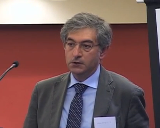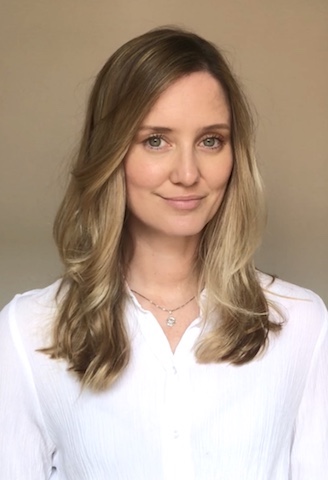Studying at the University of Verona
Here you can find information on the organisational aspects of the Programme, lecture timetables, learning activities and useful contact details for your time at the University, from enrolment to graduation.
Academic calendar
The academic calendar shows the deadlines and scheduled events that are relevant to students, teaching and technical-administrative staff of the University. Public holidays and University closures are also indicated. The academic year normally begins on 1 October each year and ends on 30 September of the following year.
Course calendar
The Academic Calendar sets out the degree programme lecture and exam timetables, as well as the relevant university closure dates..
| Period | From | To |
|---|---|---|
| TERP 3A1S | Oct 1, 2019 | Nov 8, 2019 |
| TERP 2A1S | Oct 7, 2019 | Dec 6, 2019 |
| TERP 1A1S | Oct 9, 2019 | Dec 13, 2019 |
| TERP 1A2S - 1 periodo | Feb 3, 2020 | Mar 6, 2020 |
| TERP 3A2S - 1 periodo | Feb 3, 2020 | Mar 13, 2020 |
| TERP 2A2S | Mar 9, 2020 | May 15, 2020 |
| TERP 1A2S - 2 periodo | Apr 8, 2020 | May 24, 2020 |
| TERP 3A2S - 2 periodo | May 4, 2020 | May 8, 2020 |
| Session | From | To |
|---|---|---|
| TERP ROV SESSIONE INVERNALE 2 ANNO | Dec 16, 2019 | Jan 24, 2020 |
| TERP ROV SESSIONE INVERNALE (1 e 3 ANNO) | Jan 7, 2020 | Jan 31, 2020 |
| TERP ROV SESSIONE ESTIVA 2 ANNO | May 25, 2020 | Jun 26, 2020 |
| TERP ROV SESSIONE ESTIVA 3 ANNO | Jul 1, 2020 | Jul 31, 2020 |
| TERP ROV SESSIONE ESTIVA 1 ANNO | Jul 6, 2020 | Jul 31, 2020 |
| TERP ROV SESSIONE AUTUNNALE | Sep 1, 2020 | Sep 30, 2020 |
| Session | From | To |
|---|---|---|
| TERP SESSIONE AUTUNNALE | Nov 1, 2020 | Dec 31, 2020 |
| TERP SESSIONE PRIMAVERILE | Mar 1, 2021 | Apr 30, 2021 |
| Period | From | To |
|---|---|---|
| FESTIVITA' OGNISSANTI | Nov 1, 2019 | Nov 1, 2019 |
| FESTIVITA' IMMACOLATA CONCEZIONE | Dec 8, 2019 | Dec 8, 2019 |
| VACANZE DI NATALE | Dec 24, 2019 | Jan 6, 2020 |
| VACANZE DI PASQUA | Apr 10, 2020 | Apr 15, 2020 |
| FESTA DELLA LIBERAZIONE | Apr 25, 2020 | Apr 25, 2020 |
| Festa del Lavoro | May 1, 2020 | May 1, 2020 |
| FESTA DELLA REPUBBLICA | Jun 2, 2020 | Jun 2, 2020 |
| FESTA S. PATRONO | Aug 5, 2020 | Aug 5, 2020 |
| Description | Period | From | To |
|---|---|---|---|
| TERP 3^ anno - 1^semestre | TERP 3^ anno - 1^semestre | Nov 11, 2019 | Dec 13, 2019 |
| TERP 2^ anno - 1^semestre | TERP 2^ anno - 1^semestre | Jan 27, 2020 | Mar 6, 2020 |
| TERP 1^ anno - 2^semestre (1 periodo) | TERP 1^ anno - 2^semestre (1 periodo) | Mar 9, 2020 | Apr 3, 2020 |
| TERP 3^ anno - 2^semestre (1 periodo) | TERP 3^ anno - 2^semestre (1 periodo) | Mar 16, 2020 | Apr 30, 2020 |
| TERP 3^ anno - 2^semestre (2 periodo) | TERP 3^ anno - 2^semestre (2 periodo) | May 11, 2020 | Jun 19, 2020 |
| TERP 1^ anno - 2^semestre (2 periodo) | TERP 1^ anno - 2^semestre (2 periodo) | May 25, 2020 | Jun 26, 2020 |
| TERP 2^ anno - 2^semestre (1 periodo) | TERP 2^ anno - 2^semestre (1 periodo) | Jun 29, 2020 | Jul 31, 2020 |
| TERP 2^ anno - 2^semestre (2 periodo) | TERP 2^ anno - 2^semestre (2 periodo) | Sep 1, 2020 | Sep 30, 2020 |
Exam calendar
Exam dates and rounds are managed by the relevant Medicine Teaching and Student Services Unit.
To view all the exam sessions available, please use the Exam dashboard on ESSE3.
If you forgot your login details or have problems logging in, please contact the relevant IT HelpDesk, or check the login details recovery web page.
Should you have any doubts or questions, please check the Enrollment FAQs
Academic staff
 loretta.berti@univr.it
loretta.berti@univr.it
 borghesi.a@mail.apss.tn.it
borghesi.a@mail.apss.tn.it
 silvia.chiesa@apss.tn.it
silvia.chiesa@apss.tn.it
 drgasp@tin.it
drgasp@tin.it
 enrica.latterini@apss.tn.it
enrica.latterini@apss.tn.it
 renata.lazzeri@apss.tn.it
renata.lazzeri@apss.tn.it
 anja.meyer@univr.it
anja.meyer@univr.it
 rocco.micciolo@economia.unitn.it
rocco.micciolo@economia.unitn.it
 antonio.nocera@univr.it
antonio.nocera@univr.it
 stefania.pontrandolfo@univr.it
stefania.pontrandolfo@univr.it
Study Plan
The Study Plan includes all modules, teaching and learning activities that each student will need to undertake during their time at the University.
Please select your Study Plan based on your enrollment year.
1° Year
| Modules | Credits | TAF | SSD |
|---|
2° Year activated in the A.Y. 2020/2021
| Modules | Credits | TAF | SSD |
|---|
3° Year activated in the A.Y. 2021/2022
| Modules | Credits | TAF | SSD |
|---|
| Modules | Credits | TAF | SSD |
|---|
| Modules | Credits | TAF | SSD |
|---|
| Modules | Credits | TAF | SSD |
|---|
Legend | Type of training activity (TTA)
TAF (Type of Educational Activity) All courses and activities are classified into different types of educational activities, indicated by a letter.
Career prospects
Module/Programme news
News for students
There you will find information, resources and services useful during your time at the University (Student’s exam record, your study plan on ESSE3, Distance Learning courses, university email account, office forms, administrative procedures, etc.). You can log into MyUnivr with your GIA login details: only in this way will you be able to receive notification of all the notices from your teachers and your secretariat via email and soon also via the Univr app.
Orario lezioni
Documents
| Title | Info File |
|---|---|
|
|
pdf, it, 66 KB, 22/09/23 |
|
|
pdf, it, 293 KB, 12/04/24 |
|
|
pdf, it, 259 KB, 10/04/24 |
|
|
pdf, it, 32 KB, 05/03/24 |
|
|
pdf, it, 1453 KB, 15/02/24 |
Gestione carriere
Appelli d'esame
AVVISO IMPORTANTE
Documents
| Title | Info File |
|---|---|
|
|
pdf, it, 313 KB, 02/10/23 |
Student login and resources
Attività Seminariali/a scelta dello studente
Attività Seminariali/a scelta dello studente
Tirocinio professionalizzante
Documents
| Title | Info File |
|---|---|
|
|
pdf, it, 146 KB, 15/02/24 |
 045 8009841
045 8009841



















